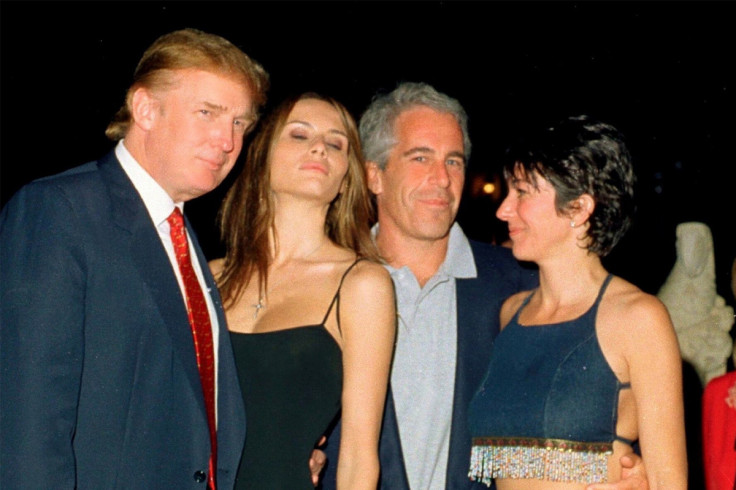'No More Secrets': Calls Grow for Donald Trump to Unseal Epstein Files as White House Faces Demands for Full Disclosure
House releases 33,295 pages of Epstein-related records; DOJ memo says no 'client list' found, survivors call for fuller transparency

Jeffrey Epstein's case has erupted into a fresh battle over transparency, with survivors, lawmakers, and campaign allies demanding the full release of government and estate records as the White House comes under intense pressure.
For weeks, congressional investigators and victims have intensified calls for the complete unsealing of records tied to Epstein and Ghislaine Maxwell, arguing that piecemeal releases and government pronouncements leave key questions unanswered.
The House Oversight Committee announced it had made tens of thousands of pages available after subpoenas and production from the Department of Justice, while the DOJ itself has defended limited disclosure on grounds of victim privacy and complex evidentiary constraints.
Government Files Released and With Them, New Pressure
On 02 September 2025, the House Committee on Oversight and Government Reform posted 33,295 pages of Epstein-related records provided by the Department of Justice, a trove the committee said would be helpful to the public so long as victim identities and child sexual abuse material were redacted.
The committee placed the files on a publicly accessible drive and said additional productions would follow under subpoena.
Survivors and some lawmakers view the release as only a first step. At a Capitol Hill press conference, victims urged Congress and the executive to go further, calling for unredacted files that could explain long-standing unanswered questions about Epstein's network and how investigations were handled.
Video of that press event, including survivors' testimony and lawmakers' remarks, has been posted publicly.
DOJ Responds: No 'Client List', No Basis for Further Disclosure
The Department of Justice and the Federal Bureau of Investigation published an internal memo describing an exhaustive review of investigative holdings and asserting that their searches uncovered neither a credible 'client list' nor evidence that Epstein blackmailed prominent individuals as a routine business practice.
The memorandum said investigators found 'no basis to revisit the disclosure' of court-ordered sealed materials and emphasised that the files contained large quantities of sensitive victim material that required protection. The DOJ also released enhanced surveillance video of the Metropolitan Correctional Center area from the night of Epstein's death as part of the transparency effort.

That DOJ conclusion and the release of selected videos have not satisfied critics. For many advocates and members of Congress, the memo raises at least as many questions as it answers: how exhaustive were the searches, which custodians were examined, and why were certain documents withheld under sealing orders?
The oversight committee has said it will continue to press the department for fuller access while promising to redact victim-identifying information before public posting.
Courts Push Back on Grand Jury Transcripts, but Legislative Routes Multiply
Separate but related, federal judges have repeatedly rejected broad motions to unseal grand jury transcripts in the Epstein and Maxwell matters, noting legal restrictions and the special protections accorded to grand jury proceedings.
A recent court decision declined to make those grand jury materials public, citing the limited probative value of disclosing constrained transcripts and potential harm to victims and investigative integrity. Those rulings underscore the legal barriers that hamper instantaneous or complete transparency.
Faced with judicial limits, members of Congress have turned to statutory and political levers. Republicans and Democrats alike have introduced and championed measures, from subpoenaing the estate and DOJ records to attempting discharge petitions, designed to force fuller disclosure of government files related to Epstein's investigations.
Committee chairmen have argued that the public interest in accountability justifies aggressive oversight; critics counter that sloppy rollouts risk retraumatising victims and spreading unverified allegations.
The push to 'unseal Epstein files' has become more than a question about documents: it is a test of institutions' willingness to reconcile victims' privacy with public accountability, and of political actors' readiness to let independent scrutiny proceed without spectacle.
Whether Congress secures broader releases, or whether courts continue to limit access under grand-jury protections, will determine how much of the Epstein story remains public record — and how many citizens will feel the answer was sufficient.
© Copyright IBTimes 2025. All rights reserved.





















